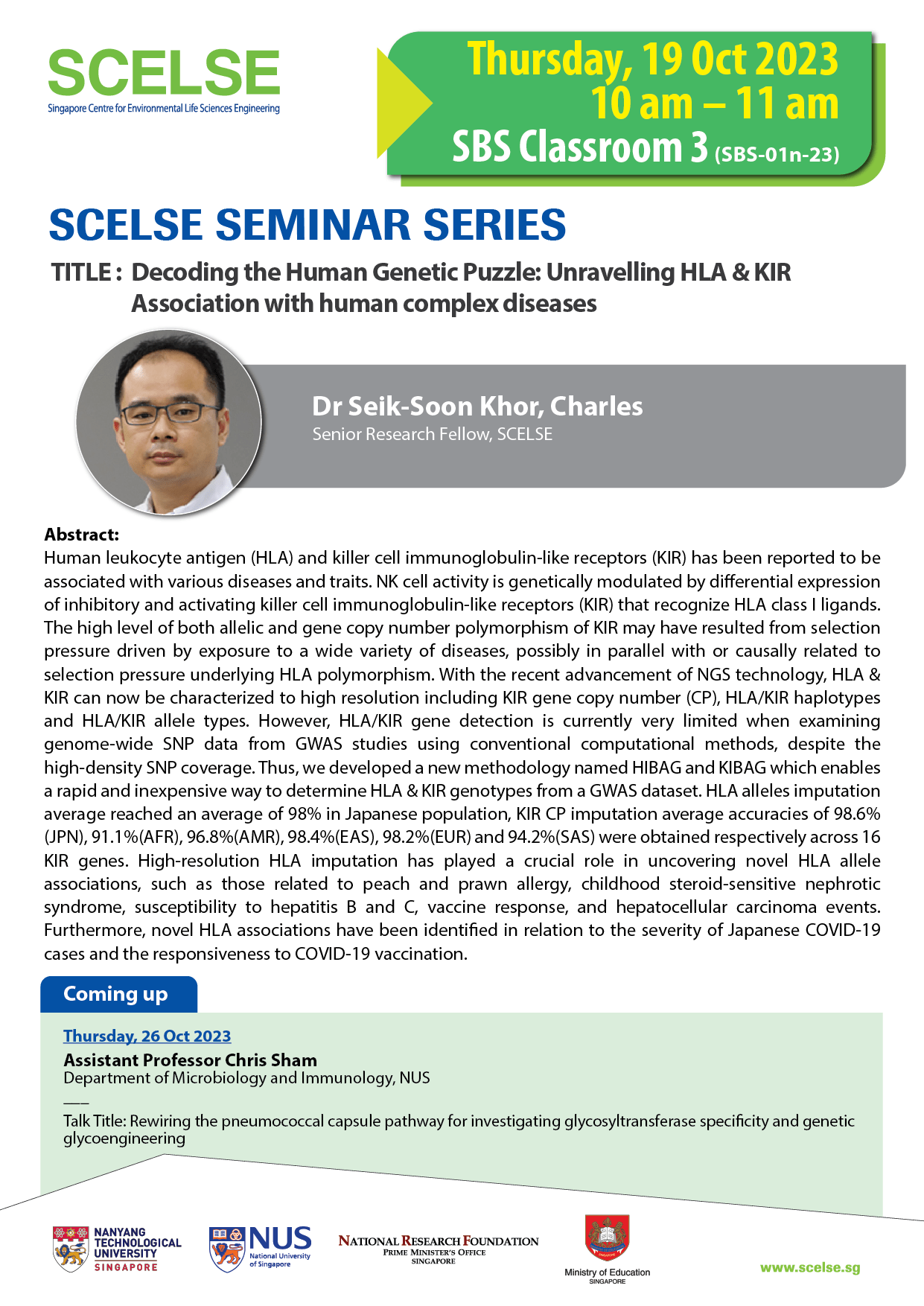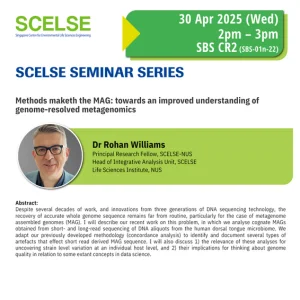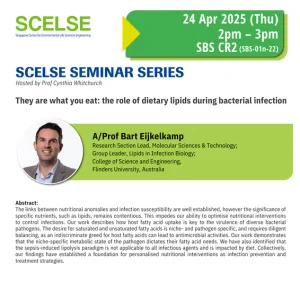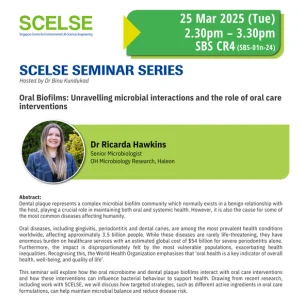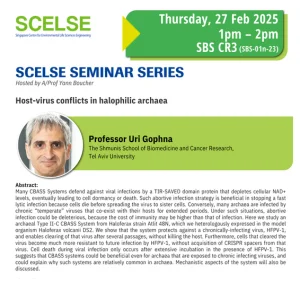SCELSE Seminar Series: Decoding the Human Genetic Puzzle: Unravelling HLA & KIR Association with human complex diseases
Date: Thursday, 19 Oct 2023
Time: 10am – 11am
Venue: NTU School of Biological Sciences Classroom 3 (SBS-01N-23)
Abstract:
Human leukocyte antigen (HLA) and killer cell immunoglobulin-like receptors (KIR) has been reported to be associated with various diseases and traits. NK cell activity is genetically modulated by differential expression of inhibitory and activating killer cell immunoglobulin-like receptors (KIR) that recognize HLA class I ligands. The high level of both allelic and gene copy number polymorphism of KIR may have resulted from selection pressure driven by exposure to a wide variety of diseases, possibly in parallel with or causally related to selection pressure underlying HLA polymorphism. With the recent advancement of NGS technology, HLA & KIR can now be characterized to high resolution including KIR gene copy number (CP), HLA/KIR haplotypes and HLA/KIR allele types. However, HLA/KIR gene detection is currently very limited when examining genome-wide SNP data from GWAS studies using conventional computational methods, despite the high-density SNP coverage. Thus, we developed a new methodology named HIBAG and KIBAG which enables a rapid and inexpensive way to determine HLA & KIR genotypes from a GWAS dataset. HLA alleles imputation average reached an average of 98% in Japanese population, KIR CP imputation average accuracies of 98.6% (JPN), 91.1%(AFR), 96.8%(AMR), 98.4%(EAS), 98.2%(EUR) and 94.2%(SAS) were obtained respectively across 16 KIR genes. High-resolution HLA imputation has played a crucial role in uncovering novel HLA allele associations, such as those related to peach and prawn allergy, childhood steroid-sensitive nephrotic syndrome, susceptibility to hepatitis B and C, vaccine response, and hepatocellular carcinoma events. Furthermore, novel HLA associations have been identified in relation to the severity of Japanese COVID-19 cases and the responsiveness to COVID-19 vaccination.
Speaker:
DR SEIK-SOON KHOR, CHARLES
Senior Research Fellow, SCELSE
